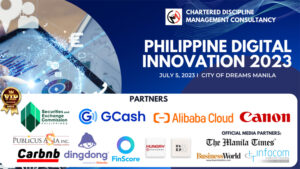How to be a CEO: Start young

(Part 2)
During the last quarter of the 20th century, we saw the rise of Filipino management professionals to the top of both domestic and foreign corporations through a generally common route: getting a college degree from the leading Philippine universities, both in the Metro Manila area and in such regional educational centers like Cebu (e.g., San Carlos University, Colegio de San Jose), Dumaguete (Siliman University), Davao and Cagayan de Oro (especially the Ateneos and the UPs), plus a few others. Then they tried to get a few years of work experience in some multinational or national corporations. For those lucky enough to come from well-to-do families or to obtain scholarships to US universities, they could pursue an MBA in the leading business schools of the US. Then work for a while either in the Philippines or abroad for some leading US or European (Shell, Nestlé, Unilever) enterprises.
As the Asian Institute of Management (AIM) and the graduate schools of business of top-level universities like the University of the Philippines (UP), De La Salle, and the Ateneo University improved their quality of education, many more young professionals from different specializations (engineering, the sciences, law, accounting, and business administration) were able to join the ascent to the top of management by obtaining their MBA degrees in these local business schools, following more or less the example of those who went to the US.
As the Philippine economy increasingly embraces Industrial Revolution 4.0 (Artificial Intelligence, the Internet of Things, Robotization, and Big Data) will the past formula of preparing top business managers still work?
To answer that question, I first turn to the explanation given by Thomas Friedman in his book Thank You For Being Late, about what has happened in at least the last 30 years to dramatically change the business environment for which the millennials and the centennials will have to educate and train themselves in order to reach the top of management. In my opinion, Friedman is the non-technical writer who can explain in a most lucid way highly technical topics to the ordinary lay man.
In the book, Friedman reminds us about what the Industrial Revolution (IR) 1.0 was all about. Strictly speaking, the Philippines has not yet completed IR 1.0. which was the industrial revolution that happened in England in the late 1700s. This revolution was especially characterized by the invention of the steam engine. This period was one in which human muscle acquired more and more power through the complementary use of machines and, later on, electricity (Industrial Revolution 2.0). Machines, however, did not make human power redundant. Humans were still indispensable to the making of decisions. The inventions of that era actually made human control and labor more valuable and important.
Today, as Chat-GPT and other digital technologies have demonstrated, labor and machines are no longer complementary. More and more cognitive tasks are being automated. In an increasing number of cases, artificial intelligent machines can make better decisions than humans. Humans and software-driven machines are increasingly becoming substitutes rather than complements. Friedman traces the driving force that made this possible to the exponential growth in computing power that was represented by the law postulated by Intel cofounder Gordon Moore in 1965 (the year after I returned to the Philippines). Moore’s Law states that the speed and power of microchips — that is, computational processing power — would double roughly every year, which he later updated to every two years, for only slightly more money with each generation. Moore’s law has held up close to that pattern for 50 years. Given what have happened during this last half century, Moore’s law actually predicted the personal computer, the cell phone, self-driving cars, the iPad, big data, and the Apple Watch. The only thing he missed, according to Moore himself, was the importance of the internet to IR 4.0.
This rapid and constant change in technology will obviously have implications on how the young should prepare themselves for top management positions. Friedman provides some guidelines on how to educate and train the top executives for IR 4.0.
First, he points out that middle-class jobs (which include management work) are being pulled up faster — they require more knowledge and education to perform successfully. To compete for such jobs, you need more of the three Rs — reading, writing, and arithmetic — and more of the four Cs — creativity, collaboration, communication, and coding.
Second, every job is being pulled apart faster: the skilled part of each job requires more skills and rewards more skills, and the routine, repetitive part, which can be more easily automated will pay minimum wages or just be given to a robot.
Third, every job is also being pulled out faster — more machines, robots, and workers in India, China, and the Philippines can now compete for all of it or part of it. This trend would demand more self-motivation, persistence, and grit to continuously learn new technical and social-emotional skills to keep one step ahead of the robots and other skilled workers in other countries through lifelong learning.
Finally, every job is being pulled down faster — it is being relegated to history and being made obsolete faster than ever. This demands more innovative and entrepreneurial thinking: a constant searching for new niches, new opportunities to start something from which to profit and create employment.
What do all these mean for human resource development in general in any given country? It would require educational systems be retooled to maximize the needed knowledge, skills, and attributes: strong fundamentals in writing, reading, coding, and math; creativity, critical thinking, communication, and collaboration; grit, self-motivation, and lifelong learning habits, and entrepreneurship and improvisation — at every level.
Given all of these trends inwhat Friedman calls the “Age of Accelerations,” this is what would I advise, especially to those belonging to Generation Z (those born after 2000) who already have in mind rising in the world of business to the top. First, I would advise them to take very seriously their studies in the K to 12 curriculums. This is the stage in which they lay strong foundations in writing, reading, coding, and math. In their senior year (Grades 11 and 12), they should give special importance to the liberal arts subjects of literature, philosophy, theology, higher math (calculus is a must), history, the social sciences (especially economics), and the physical sciences which will help them developskills in creativity, critical thinking, and effective communication. They should also make time for non-academic pursuits such as sports and extra-curricular activities in which they can start cultivating, especially the social skills of collaboration, learning how to follow authority, and how to lead. Those who are fortunate enough to belong to families whose parents are running family enterprises, it would be advisable that they start cultivating the entrepreneurial skills of innovation and improvisation by doing odd jobs for the family business during their vacations.
At the college level, how does one prepare for a career in management during these days of rapid technological change? My personal opinion is that those who specialize in engineering and sciences will have an edge in reaching the top over those who major in business administration, accounting, and similar business subjects. As I will discuss in the later part of this series of articles, it is easier for those with technical and scientific backgrounds to ground themselves in the art of management and leadership by, later in their career, pursuing masteral degrees in business administration or, more importantly today, by constantly upskilling, reskilling, and retooling themselves through the numerous Executive Education programs now available in the top business schools. Although it is not impossible, it is more difficult for those who majored in business administration, accounting, or management in their undergraduate years to acquire the more demanding technical skills that require a great deal of quantitative analysis. I am always dismayed to know that many business administration graduates are hardly exposed to such essential quantitative tools as integral and differential calculus, linear programming, and input-output analysis. In this regard, there was a time when some of the top students of the Ateneo University specialized in what was called Management Engineering which was, more than being a management or engineering course, an advanced course in Mathematics. A large percentage of the graduates of this specialization became CEOs and other top executives of leading Philippine conglomerates.
(To be continued.)
Bernardo M. Villegas has a Ph.D. in Economics from Harvard, is professor emeritus at the University of Asia and the Pacific, and a visiting professor at the IESE Business School in Barcelona, Spain. He was a member of the 1986 Constitutional Commission.




